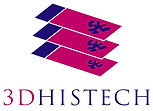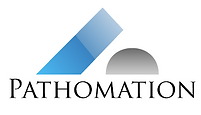
Industrypartner
History
The Federal Ministry for Economic Affairs and Climate Action (BMWK) initiated the competition "Artificial Intelligence as a Driver for Economically Relevant Ecosystems" (AI Innovation Competition) at the beginning of 2019 to advance the government's Artificial Intelligence strategy.
Out of 130 submissions, 35 projects were selected, including EMPAIA, which consists of partners such as Charité (Institute for Pathology), Fraunhofer MEVIS, TU Berlin (DAI-Labor), vitagroup AG, and QuIP (Quality Assurance Initiative Pathology GmbH).
During the project phase, EMPAIA succeeded in attracting numerous partners from clinical-diagnostic institutions, associations, and industry.
The EMPAIA consortium collaborated with partners from the industrial sector as follows:
Consortium
Charité - University Medicine Berlin
Charité is Germany's largest university hospital. The tasks of the Institute of Pathology in medical care include the histological and cytological diagnostic services for Charité and its external partner hospitals. Thanks to the research group of Prof. Peter Hufnagl, the institute has a very long experience in the field of digital pathology and the analysis of microscopic images. The institute has 8 slide scanners of different manufacturers, including a Pannoramic P1000 (3DHistech) for high-throughput scanning.
With its comprehensive know-how, its clinical expertise and its contacts to all relevant organizations, committees and industry, Charité has taken on project management. In the work packages, it will lead the development of the ecosystem and the formation of the consortium as well as involve the relevant stakeholders. It is responsible for making the ecosystem user-centered and will oversee the configuration of the reference centers.
Fraunhofer MEVIS
Fraunhofer MEVIS is a non-profit research and development center for digital medicine. Integrated into a network of clinical and academic partners, Fraunhofer MEVIS develops practical software systems for image and data-supported early detection, diagnosis and therapy. An important field of competence is the development of innovative AI solutions for pathology. Fraunhofer MEVIS works closely with medical technology and pharmaceutical companies and pursues the entire innovation chain from applied research to certified medical products.
Distributed Artificial Intelligence Laboratory
The DAI laboratory of the Technical University of Berlin under the direction of Prof. Dr. Sahin Albayrak works at the interface between research and industry, with a focus on the development of distributed, autonomous systems, machine learning, robotics, computer security as well as networks and interactive systems. In addition, the DAI-Labor was able to gain extensive experience in the development of open platforms, data management, interoperability, machine and deep learning in numerous projects in the fields of industry, mobility, government and e-health. For the EMPAIA project, the DAI-Labor will contribute its expertise, especially in the area of the explainability of AI, containerization and the networking and search for services and solutions.
Qualitätssicherungs-Initiative Pathologie GmbH
QuIP has been conducting round robin tests for pathology since 2004. These are a common means of external quality assurance with which the participants can assess their performance or compare it with other pathologies.
The sub-area of the project covered by QuIP aims to simplify the certification and approval process for diagnostic software manufacturers and to accelerate the market launch. This includes, on the one hand, validation processes that QuIP would like to support and, on the other hand, the recording and evaluation of the performance of AI tools.
QuIP is the right company in Germany to be a service provider for quality assurance to support pathologists as well as pharmaceutical and IVD-producing companies in comparing and optimizing their examination results (anonymously). The focus of EMPAIA is the development of instruments for long-term quality assurance (QA monitoring), an important step to improve the trust of the users in the results of the algorithms.
vitagroup AG
At vitagroup, over 250 specialists across Germany work, day in and day out, to sustainably improve healthcare through advanced technology and intelligent services.
Our digital products and networked supply solutions are already making possible what many believe to be a long way off. From outpatient and inpatient care to direct-to-patient, we offer cross-segment solutions for the networked, patient-centered healthcare of the future.
With the intelligent use of advanced technology, we avoid redundancies and develop smart and networked solutions that map the entire patient journey. On the basis of open standards, we create real interoperability - this is the only way to create what we call HEALTH INTELLIGENCE.

















.png)













.png)


